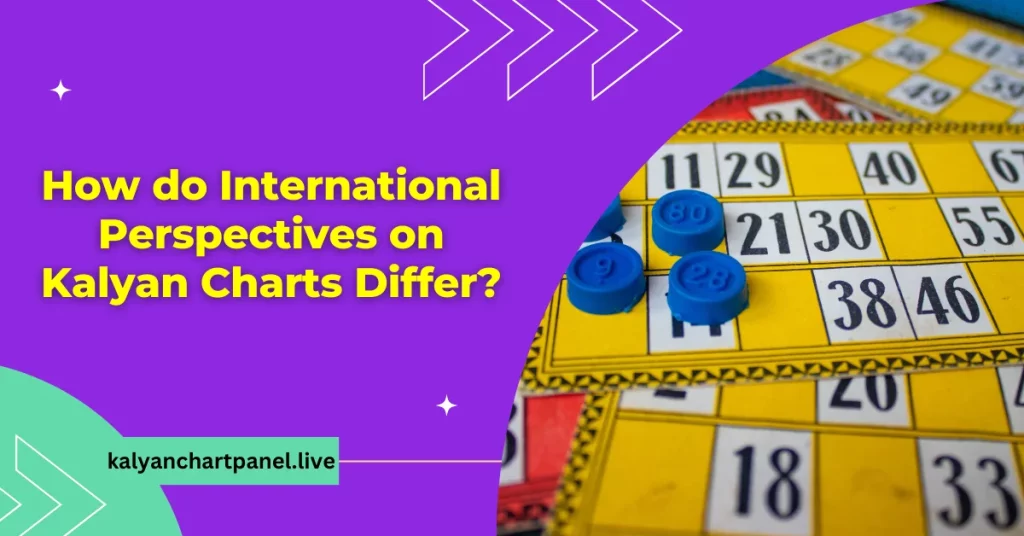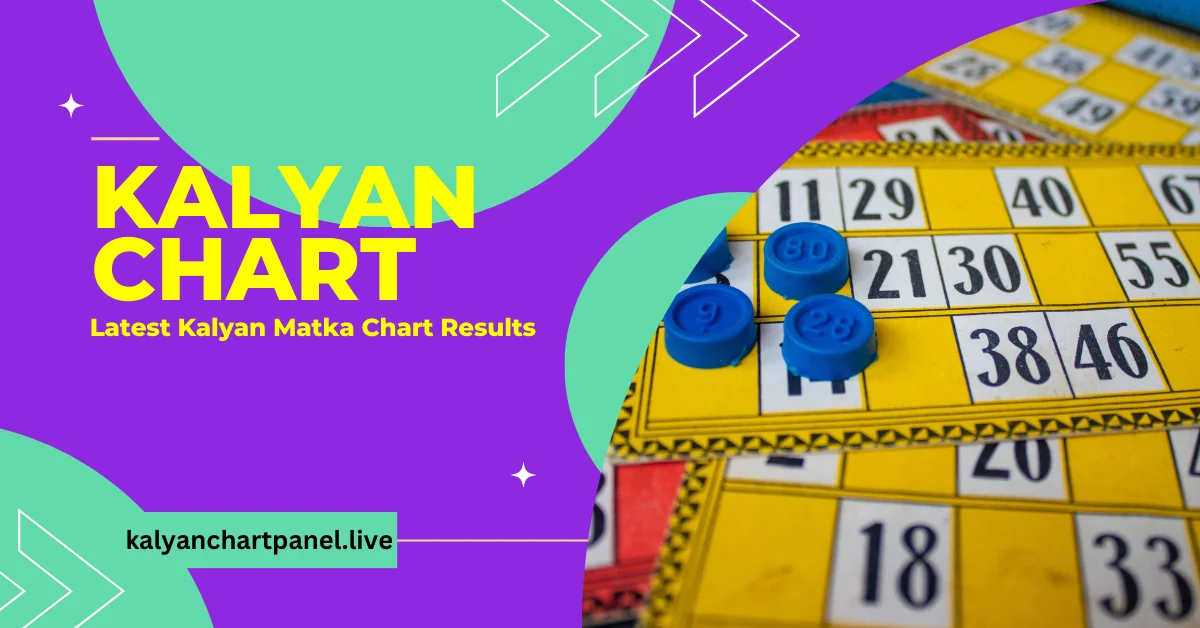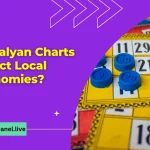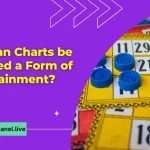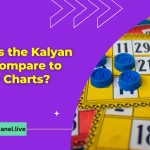Kalyan charts, which are popular in Indian gambling, have caught the eye of people around the world. These charts are mainly used to guess numbers in the Matka gambling game. Different countries have different ideas about these charts. Let’s explore how people from various parts of the world view Kalyan charts, considering their culture, laws, and society.
What are Kalyan Charts?
Before we talk about what people think, let’s understand what Kalyan charts are. Kalyan charts are like big tables that show numbers. They’re used in a game called Satta Matka, which is a kind of lottery from India. These charts show past winning numbers to help players guess future numbers.
What People in India Think
In India, where Kalyan charts come from, people have mixed feelings. Some think they’re just for fun, while others worry they encourage illegal gambling. The laws about Matka gambling in India are tricky – it’s mostly not allowed, but the rules aren’t always enforced the same way everywhere.
Many Indians see Kalyan charts as part of their history, going back to when people traded cotton. But some are worried that people might get addicted to gambling and lose all their money.
What Western Countries Think
In Western countries like the USA or UK, people often look at Kalyan charts in a more studious way. Math experts might study these charts to learn about patterns and chances. But they don’t focus much on the gambling part because their countries have strict rules about betting.
Some researchers in these countries are interested in how Kalyan charts affect how people think and make choices about taking risks.
Views from Other Asian Countries
Other countries in Asia have their own number games, so they think about Kalyan charts differently:
- China: Chinese people find number games interesting because of their own traditions, but their strict laws don’t allow much gambling.
- Thailand: People in Thailand like their own national lottery, so some are curious about Kalyan charts for guessing numbers.
- Singapore: Singapore has very strict rules about gambling, so they’re usually not happy about things like Kalyan charts that might encourage betting.
Middle Eastern Thoughts
In many Middle Eastern countries, gambling isn’t allowed because of religious rules. So, people there often don’t like Kalyan charts or don’t care about them. But some teachers and researchers might study the math behind the charts.
What African Countries Think
African countries have different ideas about Kalyan charts, based on their own lotteries and what they think about gambling:
- South Africa: Some people who like gambling are interested in Kalyan charts, but they’re not very common.
- Nigeria: As more people bet on sports, some are curious about different ways to guess numbers, including Kalyan charts.
- Kenya: While many people in Kenya like to gamble, they don’t know much about Kalyan charts and prefer their own ways of guessing numbers.
Latin American Views
In Latin America, where lottery games are popular in many countries, most people don’t know about Kalyan charts. But some people who really like gambling are starting to get interested in these charts as a new way to guess numbers.
In countries like Brazil and Argentina, where many Indian people have moved, more people might know about Kalyan charts, but they’re still not used much.
What Europeans Think
European countries have different thoughts on Kalyan charts:
- United Kingdom: Some researchers study Kalyan charts to learn about math and chances.
- Italy: Italy has its own popular number games, so some gamblers there are curious about Kalyan charts.
- Germany: Because of strict rules, people in Germany mostly see Kalyan charts as interesting math puzzles, not for real gambling.
Legal and Moral Questions
Around the world, whether Kalyan charts are allowed often depends on each country’s gambling laws. In places where gambling is strictly forbidden, using these charts might be seen as breaking the law. People also argue about whether Kalyan charts help people gamble responsibly or make gambling problems worse.
Culture and Globalization
As people from different countries talk to each other more, knowledge about Kalyan charts has spread. This has led to some interesting exchanges, with some gamblers in other countries trying out parts of the Matka system in their own betting games.
Technology and Kalyan Charts
The internet has changed how people around the world see Kalyan charts:
- Online Websites: Kalyan charts on the internet mean more people can see them, which has started talks about online gambling rules.
- Data Studies: Some tech companies think Kalyan charts are interesting for teaching computers to make predictions.
- Phone Apps: Apps about Kalyan charts have made some countries worry about making gambling too easy for people.
What Researchers Think
Researchers from different fields are interested in Kalyan charts:
- Math experts study how the numbers in the charts work.
- People who study society look at how these charts affect communities.
- Mind experts research how the charts change the way people think about gambling.
This research helps people around the world understand Kalyan charts better, beyond just gambling.
Money Matters
When it comes to money, different countries have different thoughts about Kalyan charts:
- Tourism: Some places think unique gambling games like Matka could attract tourists.
- Hidden Money: Many countries worry that Kalyan charts might help illegal gambling and tax cheating.
- Jobs: Some people say that if these games were allowed and controlled, they could create jobs.
Responsible Gambling
Many countries are trying to make gambling safer. When they think about Kalyan charts, they often worry:
- Addiction: Health experts around the world are concerned that number guessing games can be addictive.
- Teaching People: Some countries include information about prediction charts when they teach people about safe gambling.
- Making Rules: Countries are talking about how to control or limit access to these kinds of prediction tools.
What Might Happen in the Future
As people’s ideas about gambling change, their thoughts on Kalyan charts will probably change too:
- More Rules: Many countries are making stricter rules for all kinds of gambling, including prediction systems.
- Keeping Traditions: Some people might try to keep Kalyan charts as part of history, separate from gambling.
- New Technology: Advanced computers might change how people see and use these charts.
Conclusion
People around the world think about Kalyan charts in many different ways. Their ideas are shaped by their culture, laws, and society. Some countries see these charts as part of an old gambling tradition, while others worry they might cause problems or be used for illegal activities. As people from different countries talk more, their different views will probably mix and change how everyone thinks about Kalyan charts and similar number guessing systems in the future.
FAQs
Q: Are Kalyan charts allowed in all countries?
A: It depends on the country. Each place has its own rules about gambling.
Q: Can Kalyan charts really predict lottery numbers?
A: There’s no scientific proof that they can accurately predict numbers.
Q: What do researchers think about Kalyan charts?
A: They study them to learn about math, society, and how people think.
Q: Do any countries encourage using Kalyan charts?
A: Most countries don’t officially support using them because they’re worried about gambling problems.
Q: How has the internet changed what people think about Kalyan charts?
A: The internet has made more people aware of them, but it’s also created new problems with rules and laws.
